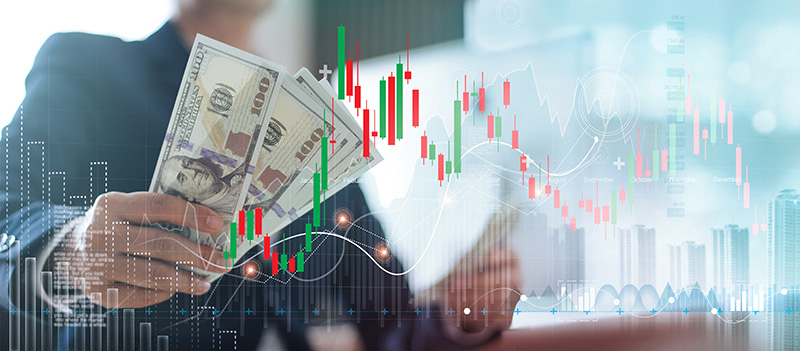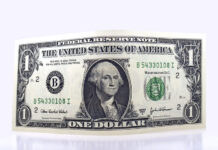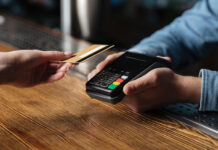Have you heard about Forex but don’t know how to get involved? Do you want to make money trading currency online but don’t know where to start? If either of these applies to you, then this article can help.
Foreign exchange (Forex) is a multi-billion-dollar industry that has become an attractive alternative for investors who are looking outside the stock market realms. For those looking in from the sidelines, understanding Forex can be confusing because it seems like something out of a thriller movie set in overseas banks and board rooms with fast-paced traders making trades worth millions of dollars on high-powered computers while sipping their coffee.
Contrary to what you may think, Forex is something even a rookie can get in the action, and with the right guidance, it has become an accessible market to all. Currency trading (or Forex) is when two parties make a trade on the value of one currency against another. When this trade is done, there’ll be a difference in price that determines profit or loss for each party; this difference in prices is called “the spread.”
But if you’re a newbie, how could you possibly spot a legitimate versus a scam? There are platforms that provide Worldwide brokers reviews to newbies and pros alike insight on legitimate brokers as well as scams, before you head there, you have to know how to spot a scam in general.
This article is going to give you a sort of guideline to help you know the fact from fiction and legit from fraud on the market.
Is The Forex Market Itself A Scam?
The answer is no. It’s a legit and recognized market that trades world currencies. Without it, most international transactions would be impossible or a least extremely difficult. What makes forex a sticky terrain to navigate for a rookie probably stems from the fact that the forex market has no central regulatory institutions which provide dangerous room for manipulation by fraudsters.
It’s a highly volatile trade of a zero-sum nature. This means that any profit made by a percentage of the people in the system is predicated on the loss of the remaining percentage of people.
Banks and other big financial institutions have teams that specialize in understanding how this market operates the factors that move or stall it before they invest, which makes them much more likely to win than the average new forex trader.
If you’re looking to get into forex trading, you should work with experienced forex consultants who offer consultancy services to rookies like you. But before you invest, here are some tips on how to spot a fraud from afar:
1. Registration Requirements
One of the biggest initial red flags in Forex is any type of registration requirement. There are no specific trading requirements or qualifications that must be met for a person to trade currency, therefore anyone who says you need to pay money to get started isn’t legitimate.
2. Guaranteed Profits
There are absolutely no guarantees when it comes to trading, regardless of what type of investment vehicle someone is operating under. If someone promises profits regardless of market conditions or your level of experience, then that’s how you spot a fraudster right off the bat.
3. No Commissions Involved
If an investment opportunity does have fees associated with it, the fee should be clear and upfront so there are no hidden surprises later. Additionally, a large percentage of the trader’s profits shouldn’t be able to go automatically to the broker (another name for middleman or agency).
4. Big Promises of High Returns
Be leery of anyone promising returns that sound too good to be true or guaranteed gains regardless of the market conditions or your level of experience. This one is a big warning sign of a scam. Most of these scams prey on unsuspecting people by promising them high returns and quick returns.
5. Unsolicited Offers
If you ever receive an unsolicited email or phone call from someone claiming to be able to get you access to Forex, this is a major red flag and should immediately raise suspicion and/or set off alarm bells in your head. Never provide personal information like banking or credit card details without first knowing exactly who you’re dealing with and what the company’s business is.
6. Pressure To Invest
Another sign of an illegitimate broker is pressure tactics such as “you won’t find this offer anywhere else” (they may even threaten you by saying something like “if you don’t invest now, then it’ll be too late”) or claims that they’re running out of space to accommodate new investors. These are usually just gimmicks made to lure you into their trap, you’d better see it coming and only stick to trusted traders.
Conclusion
As a newbie in forex trading, you’re most susceptible to scams. Scams are rampant in forex trading to the extent where you might be tempted to think that the whole market is just one big scam, but that’s not the case. Despite its volatility, it does present opportunities for the risk-taker in given and good conditions to yield high returns. But for you to get there you have to know how to eliminate chaff from the real deal. If you know for sure what a scam looks like and how to avoid it then you may we’ll be on your way to becoming a pro!
Disclaimer: This article contains sponsored marketing content. It is intended for promotional purposes and should not be considered as an endorsement or recommendation by our website. Readers are encouraged to conduct their own research and exercise their own judgment before making any decisions based on the information provided in this article.





































































